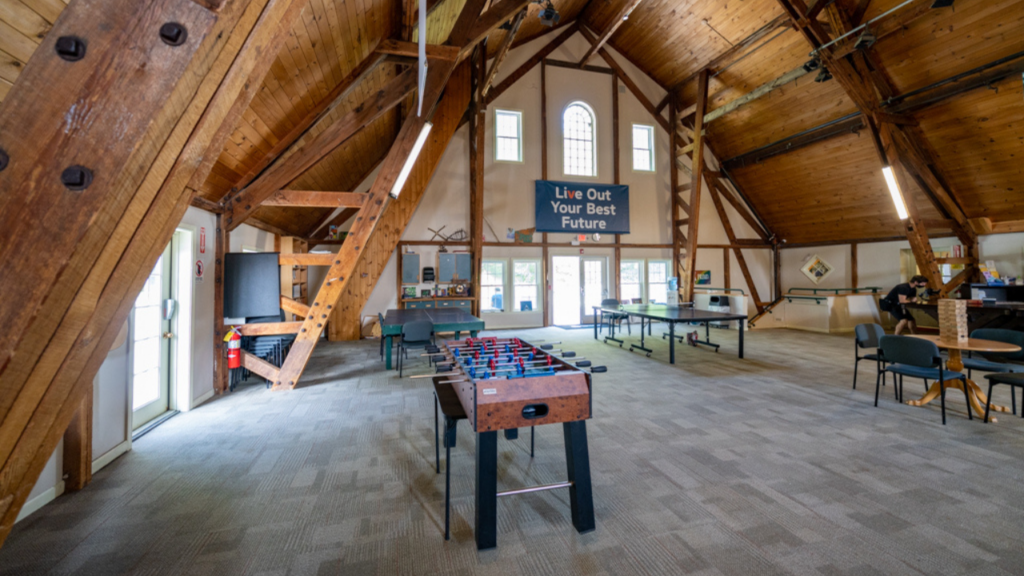The most effective addiction treatment happens within the context of your real life and community. While residential programs provide intensive care away from daily triggers, local addiction treatment helps you build recovery skills while maintaining your job, family responsibilities, and community connections that are essential for long-term success.
For many people struggling with addiction, the biggest barriers to getting help aren’t about willingness—they’re about accessibility. Work schedules, transportation challenges, childcare responsibilities, and financial constraints can all make traditional treatment difficult to access. Local addiction treatment providers are addressing these challenges with flexible approaches that fit into your actual life.
How Local Treatment Works
Modern local addiction treatment recognizes that recovery needs to be sustainable within your daily routine. This means offering services at times and locations that work for working professionals, parents, students, and others who can’t step away from their responsibilities for extended periods.
The best local programs provide comprehensive services close to home, including medical detox, intensive outpatient programs, individual and group therapy, and family counseling. Rather than requiring you to travel long distances or relocate temporarily, these services are designed to integrate with your existing life while providing the support you need for recovery.
Local treatment also emphasizes building connections with community resources that will support your recovery long-term. This includes introducing you to local support groups, sober social activities, recovery-friendly employers, and other resources that create a network of support in your home area.
The Community Connection
Local addiction treatment understands that lasting recovery happens through genuine connections with people and activities in your community. The goal isn’t just to stop using substances, but to build a fulfilling life that naturally supports sobriety.
This might involve connecting with others in recovery through local support groups, finding meaningful volunteer opportunities, or discovering new interests and hobbies that provide natural highs and social connections. Local treatment providers often have established relationships with community organizations that welcome people in recovery.
The community-based approach is particularly valuable for people in smaller towns or rural areas where everyone knows each other. Local providers understand the unique challenges and resources available in their specific area and can help you navigate recovery within that context.
Personalized Care That Fits Your Life
Effective local addiction treatment meets you where you are both geographically and personally. This means offering flexible scheduling that accommodates work shifts, family obligations, and other commitments that are part of maintaining stability during recovery.
Some people benefit from intensive outpatient programming in early recovery, attending sessions several times per week while maintaining their housing and employment. Others might need ongoing support through weekly individual therapy and support groups after completing more intensive treatment elsewhere.
Local providers can also offer specialized programming for specific populations when there’s sufficient local demand. This might include groups for professionals, parents, young adults, or others who share common experiences and challenges in recovery.
Specialized Programs for Local Communities
Local addiction treatment providers often develop expertise in addressing the specific substances and issues that affect their communities most. A provider in an area heavily affected by the opioid crisis might specialize in medication-assisted treatment, while one in a college town might focus on alcohol and stimulant abuse among young adults.
This local expertise means your treatment team understands not just addiction in general, but the specific challenges and resources present in your community. They know which employers are recovery-friendly, which housing options support sobriety, and what social and recreational opportunities are available for people in recovery.
Local providers also understand the cultural and economic factors that influence addiction and recovery in their specific area. This contextual knowledge helps them provide more relevant and effective treatment recommendations.
Swift River’s Local Massachusetts Impact
Swift River serves as a local resource for Massachusetts communities while offering the clinical excellence typically associated with specialized treatment centers. Their Cummington facility provides local access to comprehensive addiction treatment without requiring travel to distant states or unfamiliar areas.
As part of their community commitment, Swift River connects clients with local Massachusetts resources that support long-term recovery. This includes relationships with local support groups, sober living facilities, outpatient providers, and other services that help maintain recovery momentum after residential treatment.
Their approach recognizes that people from Massachusetts communities have specific needs and resources that should be incorporated into treatment planning. By understanding the local landscape of recovery resources, they can help clients build sustainable support systems close to home.
Building Long-term Local Recovery Infrastructure
The most valuable aspect of local addiction treatment is how it builds sustainable recovery infrastructure in your actual community. Rather than learning recovery skills in an artificial environment, you develop them while navigating your real relationships, responsibilities, and challenges.
Local treatment helps you identify and modify the specific triggers and situations in your environment that contributed to your addiction. This might involve changing social circles, finding new recreational activities, or developing strategies for handling workplace stress without substances.
The community connections developed through local treatment continue long after formal programming ends. Local support groups, sober friends, recovery-friendly employers, and other resources become part of your ongoing recovery support system.
This approach recognizes that addiction recovery is a long-term process that requires different types and intensities of support at different times. By building strong local connections and resources, you create a recovery safety net that’s always accessible when you need it most.













